Are you optimising your DevOps Processes? DevOps lifecycle
28 February 2023 | Noor Khan
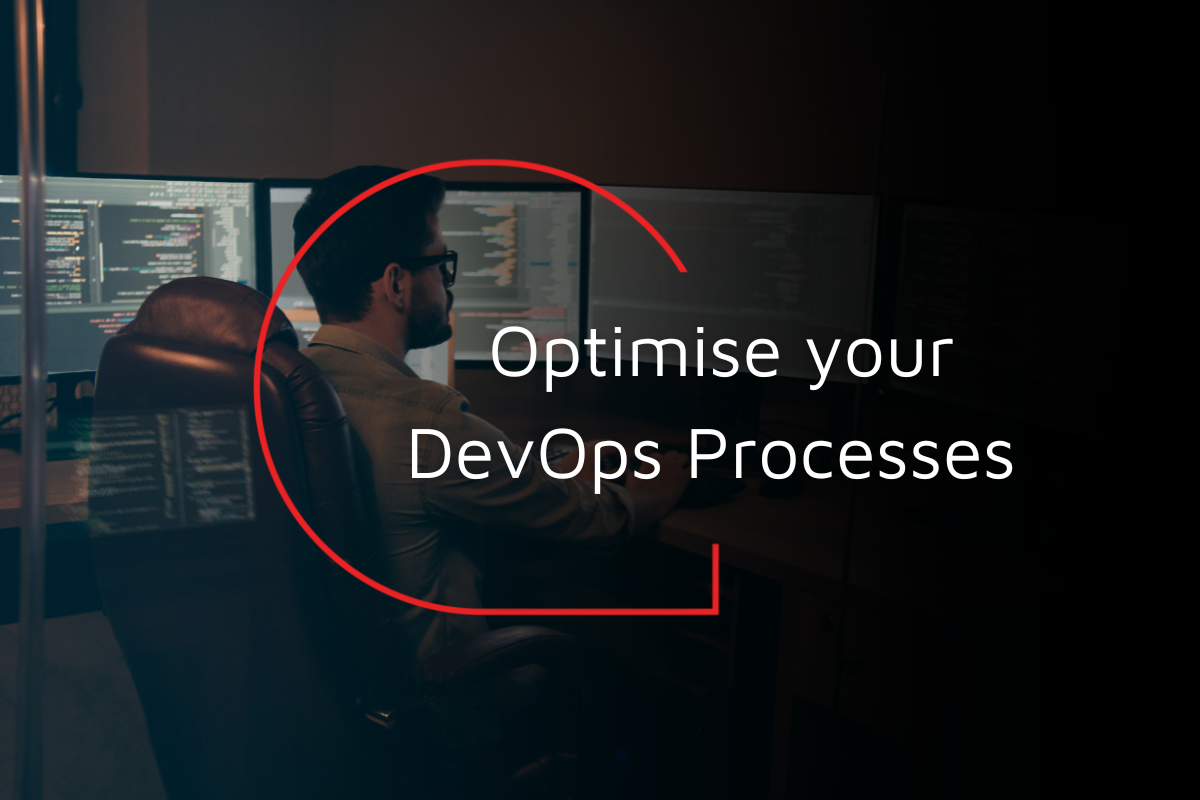
Did you know that around 77% of organisations currently rely on DevOps to deploy software or are planning to in the future according to Google? However, they are facing many challenges in adopting DevOps to maximise benefits due to several reasons including resistance to change and legacy technology.
Effectively understanding your DevOps lifecycle can help you spot gaps to improve efficiency and optimise your DevOps processes. In this article, we will look at each stage, the key challenges and how you can overcome them.
What is the DevOps life cycle?
The DevOps life cycle is a stage by stages process consisting of 7 key stages. The DevOps life cycle as the name suggests is a continuous cycle which enables organisations to improve development speed and go to market quicker with continuous improvement and innovation at its core.
What are the stages of the DevOps life cycle?
The following are the key stages of the DevOps life cycle, each stage is continuous, for example, continuous development, continuous integration and so on.
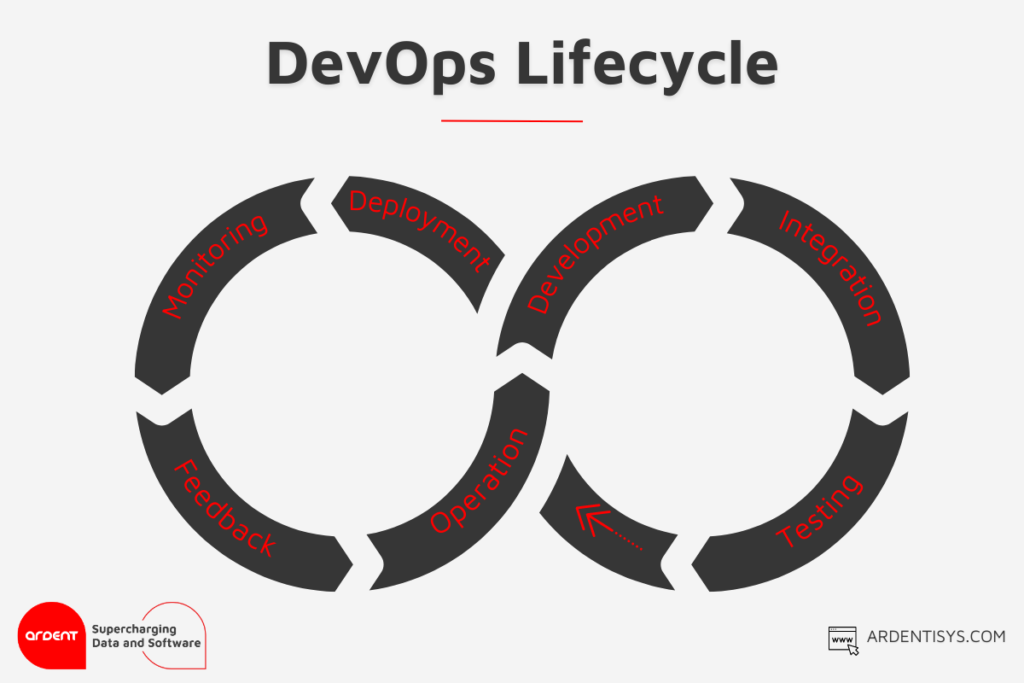
Development
The development stage is the actual build of the software. This stage in itself will be broken down into multiple stages to ensure an acceleration of the development processes. The development stage will be the starting point of the DevOps life cycle for those getting started and will reflect the stages down the line. Therefore, core principles of DevOps should be adopted, and they include:
- Collaboration
- Communication
- Automation
- Security
- Continuous improvement
Integration
Continuous integration also referred to as CI consists of the integration of new code with the existing code, testing integrations and reviewing code. Software changes and evolves with new requirements of features and changes. Therefore the integration stage deals with these additions to the software regularly, which can vary from weekly to monthly to annually. Some of the key technologies that are adopted to implement CI are:
- Git
- AWS Code Commit
- Bitbucket
Testing
The testing stage of the DevOps lifecycle is paramount in ensuring that the software is free of any bugs and errors. The continuous testing of the code will check the quality and ensure that the software meets the established requirements. At this stage one of the core pillars of DevOps is leveraged and that is automation. Automated testing processes are put in place to improve efficiency and remove the need for continuous manual inspection which would be both time and resource-heavy. Some of the key technologies that can be used include implementing automated testing are:
- Nose test
- Smoke test
- Unit test
Deployment
The next stage of DevOps is the deployment stage, where the code has been developed, robustly tested and reviewed, and then moved to the production stage. At this stage, real users will have access to the software and will be using it. The deployment process can again be automated by leveraging the right technologies including the likes of:
- Bitbucket Pipeline
- AWS Code pipeline
- Azure devops
- AWS CDK
- Cloud formation
- Terraform
Monitoring
The monitoring stage is crucial to ensuring the continued success of software. At this stage, the performance of the software is continuously monitored, this will vary from software to software. For example, software that requires consistent uptime may require 24/7 operational monitoring and support to ensure that the software is running optimally around the clock. Monitoring enables DevOps teams to spot any errors such as slow performance and poor memory optimisation, which may not be apparent in the testing phase. Any errors which do come to light are then resolved. Popular technology tools that can be adopted at this stage will include the PagerDuty for error detection and communication channels such as Slack and Teams to communicate errors with the relevant parties.
Continuous monitoring can be time and resource-heavy, therefore at this stage businesses may opt to outsource operational monitoring and support.
Feedback
The continuous feedback will drive continuous improvement of the software. The feedback should be a collective of reviews and insights from the end user on how the software performs, its user-friendliness and issues or errors reported. This stage of the DevOps lifecycle is essential to future-proof software and ensure that it will continue to serve the end user.
Operation
The continuous operations stage looks at optimising the software on an ongoing continuous basis. This empowers businesses to reduce development, increase the speed of going to market and allow for changes to be made quickly. The ongoing operational monitoring will go hand in hand with the monitoring stage to spot any trends in errors in the longer term.
DevOps challenges
Some of the key challenges that are preventing the ability for organisations fully maximise the benefits of DevOps include:
Resistance to change
Many businesses have been using traditional methods of software development and there is resistance to change. However, there are DevOps enables organisations to become agile which is a game-changing competitive edge.
Lack of DevOps metrics
If you can not measure it, you can not prove it. If you are not tracking the success of your DevOps, there will be less of a buy-in from stakeholders. Some key metrics you should be keeping track of are:
- Software availability and uptime in line with SLA (Service Level Agreements)
- Deployment speed and success
- Speed of error detection and resolution
Choice of tools and technologies
There is a variety of DevOps technologies and tools on the market and choosing the right tech stack for your DevOps operations is key. If you do not have the expertise in-house to build the right winning stack for your software and organisation, you may want to seek expert advice or outsource your DataOps.
Optimising your DevOps processes with Ardent
The Ardent software development team have been working with a wide variety of clients, hailing from industries including logistics and healthcare to provide DevOps services. Discover how our clients are winning with continuous innovation:
It can be challenging to find highly skilled DevOps engineers with significant experience; however, we can help. Our software development team with expert skills across multiple disciplines can help you adopt DevOps to reap the multiple benefits on offer. Get in touch to find out more or explore our software development services.
Ardent Insights
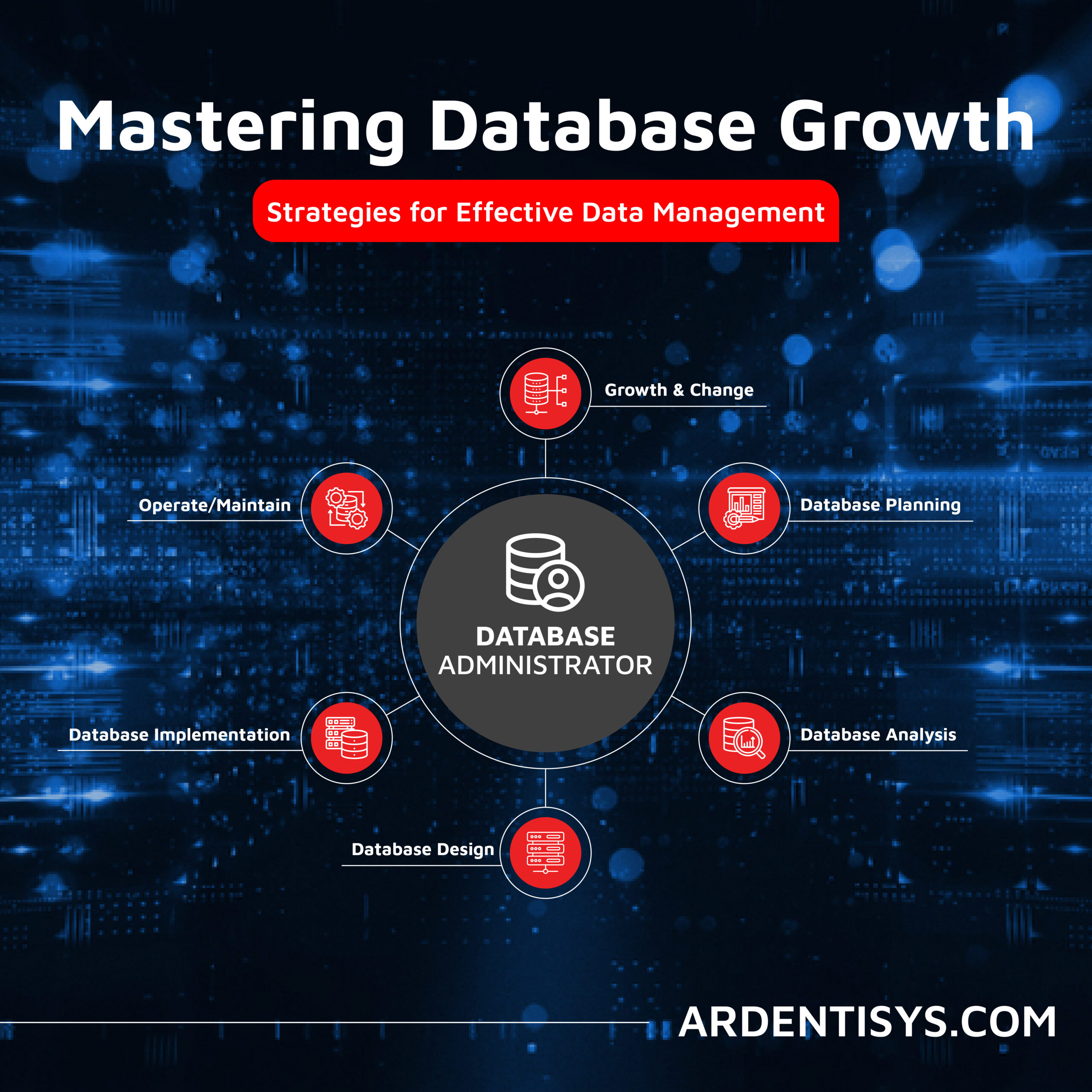
Overcoming Data Administration Challenges and Strategies for Effective Data Management
Businesses face significant challenges to continuously manage and optimise their databases, extract valuable information from them, and then to share and report the insights gained from ongoing analysis of the data. As data continues to grow exponentially, they must address key issues to unlock the full potential of their data asset across the whole business. [...]
Read More... from Are you optimising your DevOps Processes? DevOps lifecycle
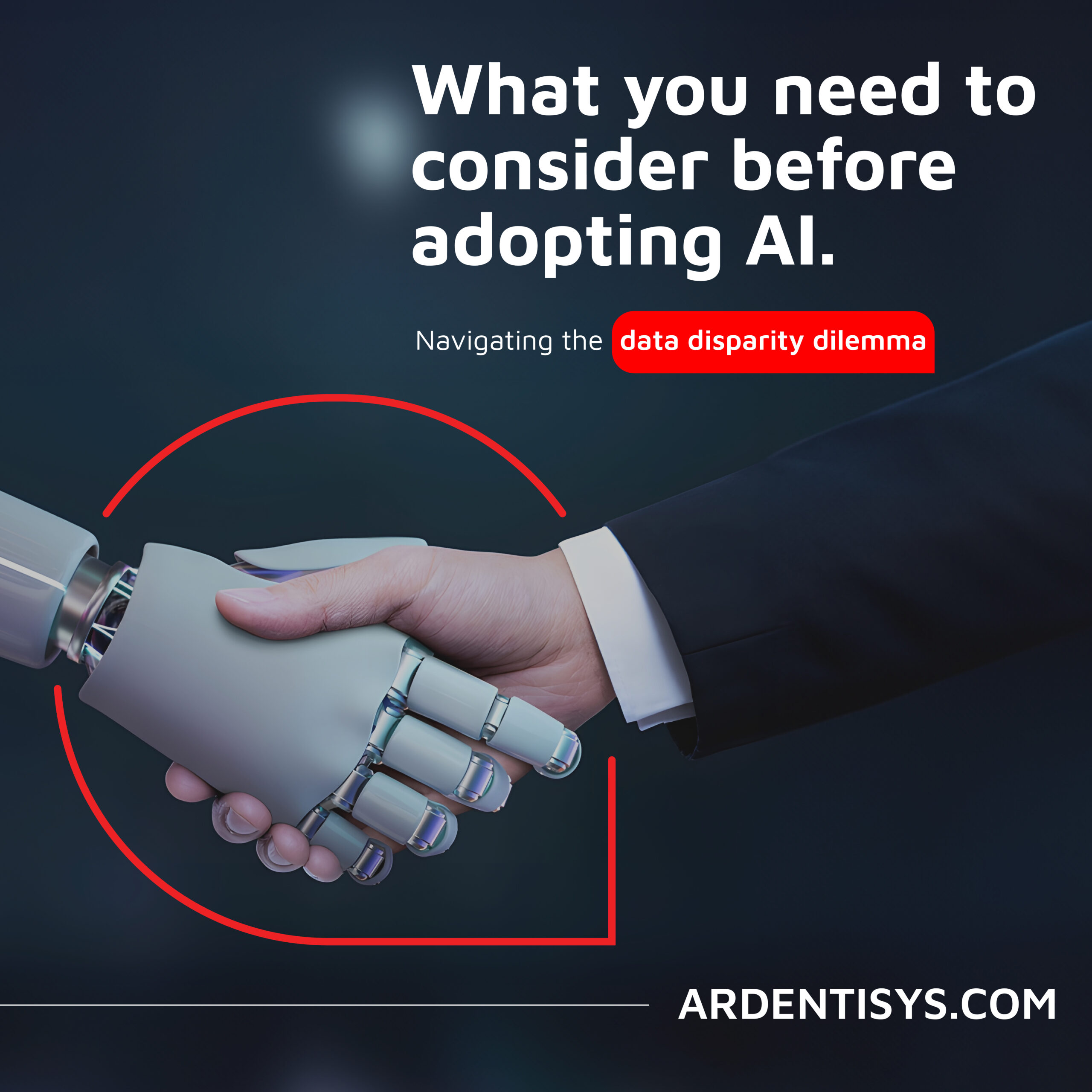
Are you considering AI adoption? We summarise our learnings, do’s and don’ts from our engagements with leading clients.
How Ardent can help you prepare your data for AI success Data is at the core of any business striving to adopt AI. It has become the lifeblood of enterprises, powering insights and innovations that drive better decision making and competitive advantages. As the amount of data generated proliferates across many sectors, the allure of [...]
Read More... from Are you optimising your DevOps Processes? DevOps lifecycle
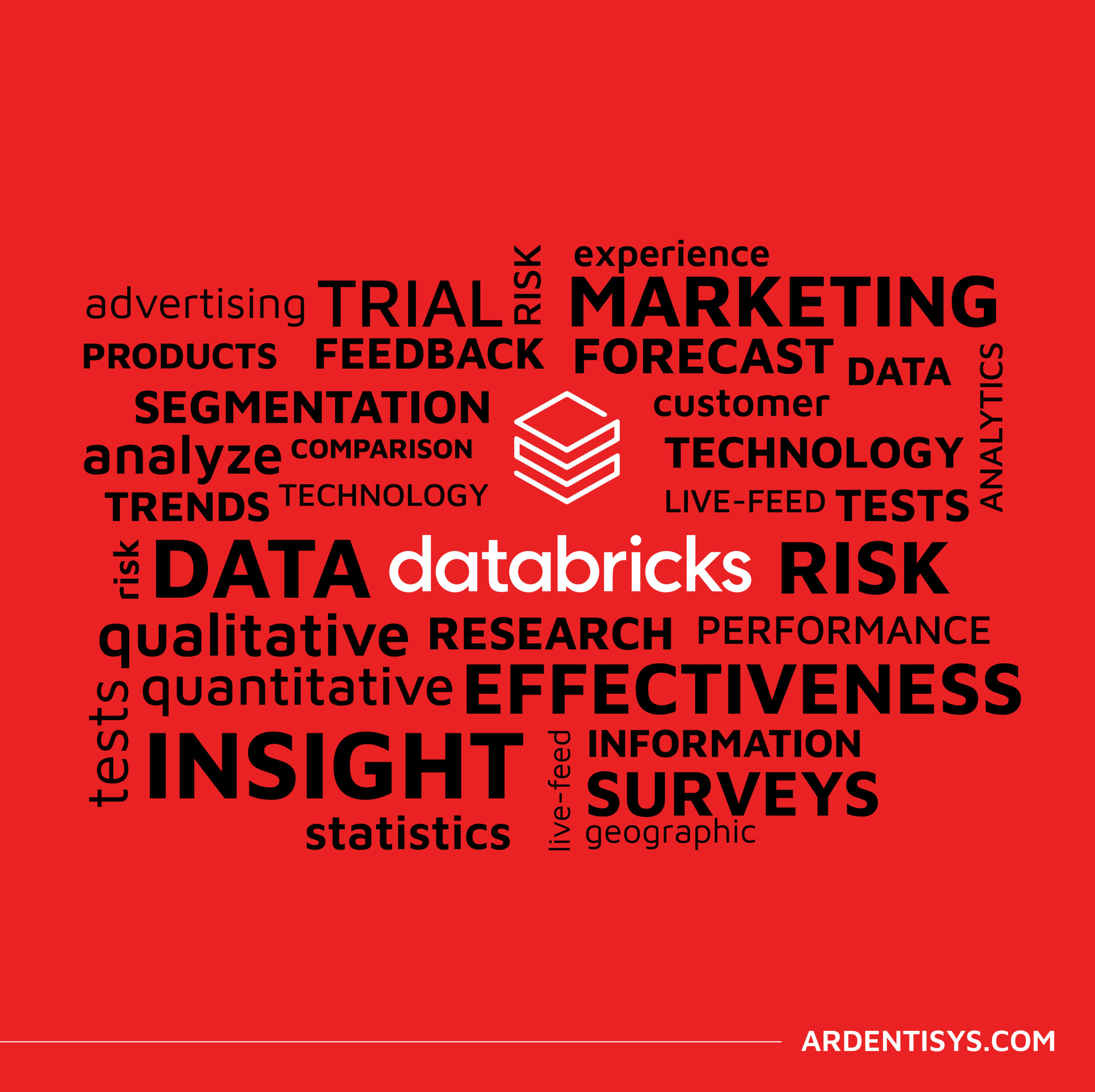
Why the Market Research sector is taking note of Databricks Data Lakehouse.
Overcoming Market Research Challenges For Market Research agencies, Organisations and Brands exploring insights across markets and customers, the traditional research model of bidding for a blend of large-scale qualitative and quantitative data collection processes is losing appeal to a more value-driven, granular, real-time targeted approach to understanding consumer behaviour, more regular insights engagement and more [...]
Read More... from Are you optimising your DevOps Processes? DevOps lifecycle






